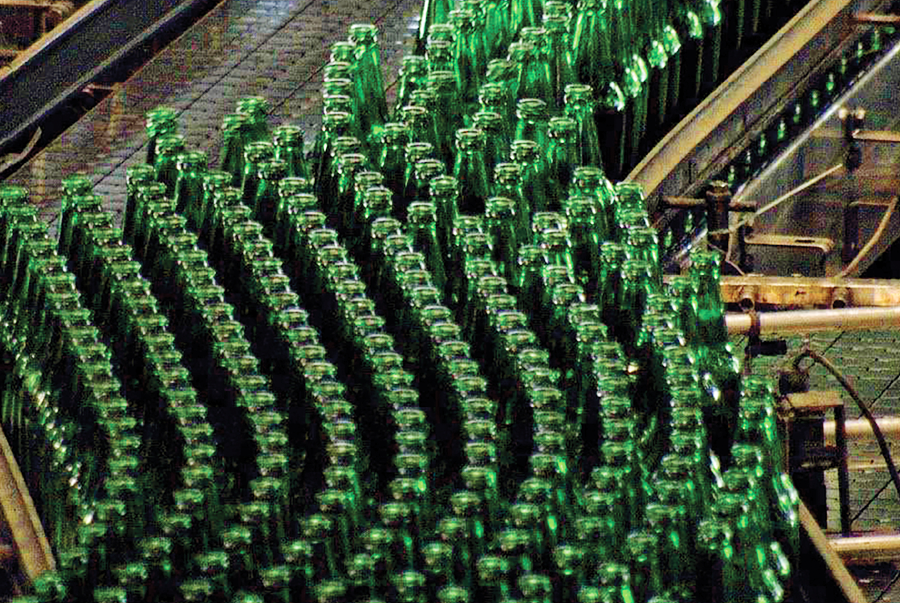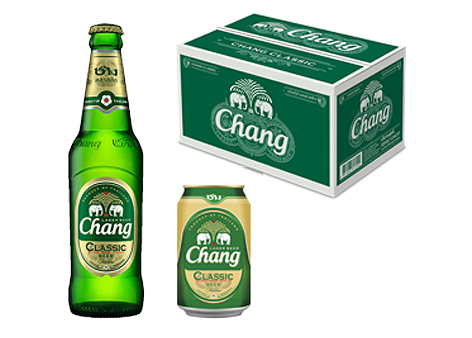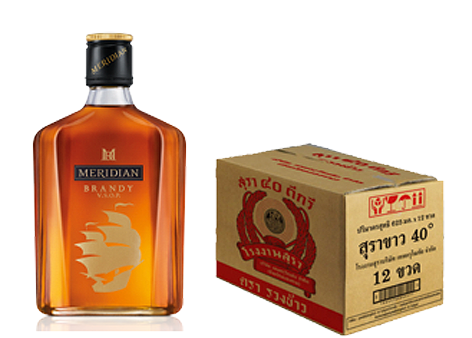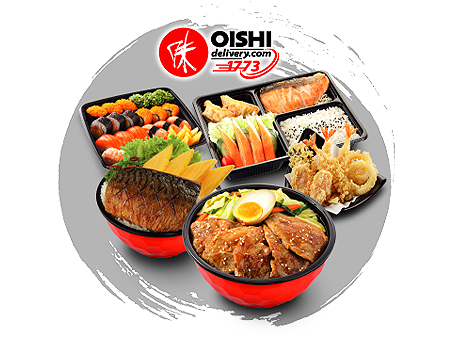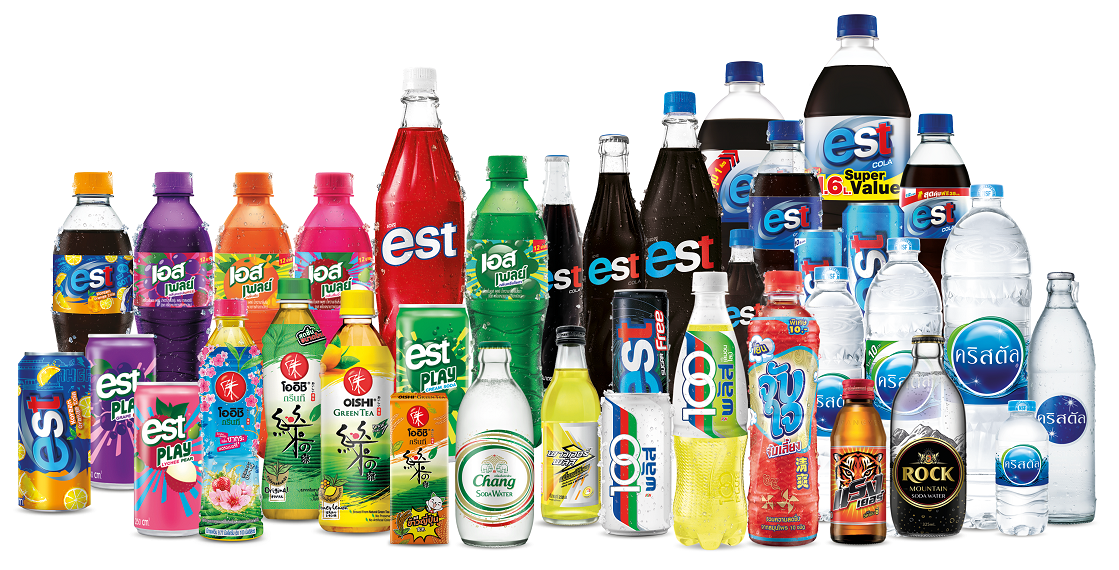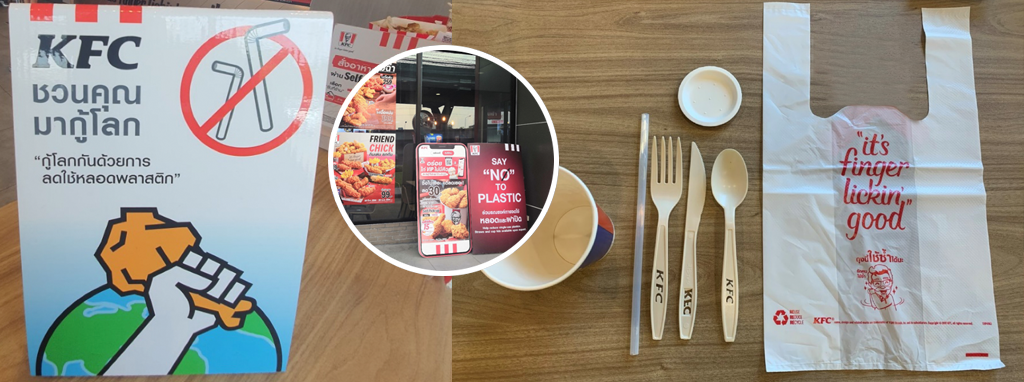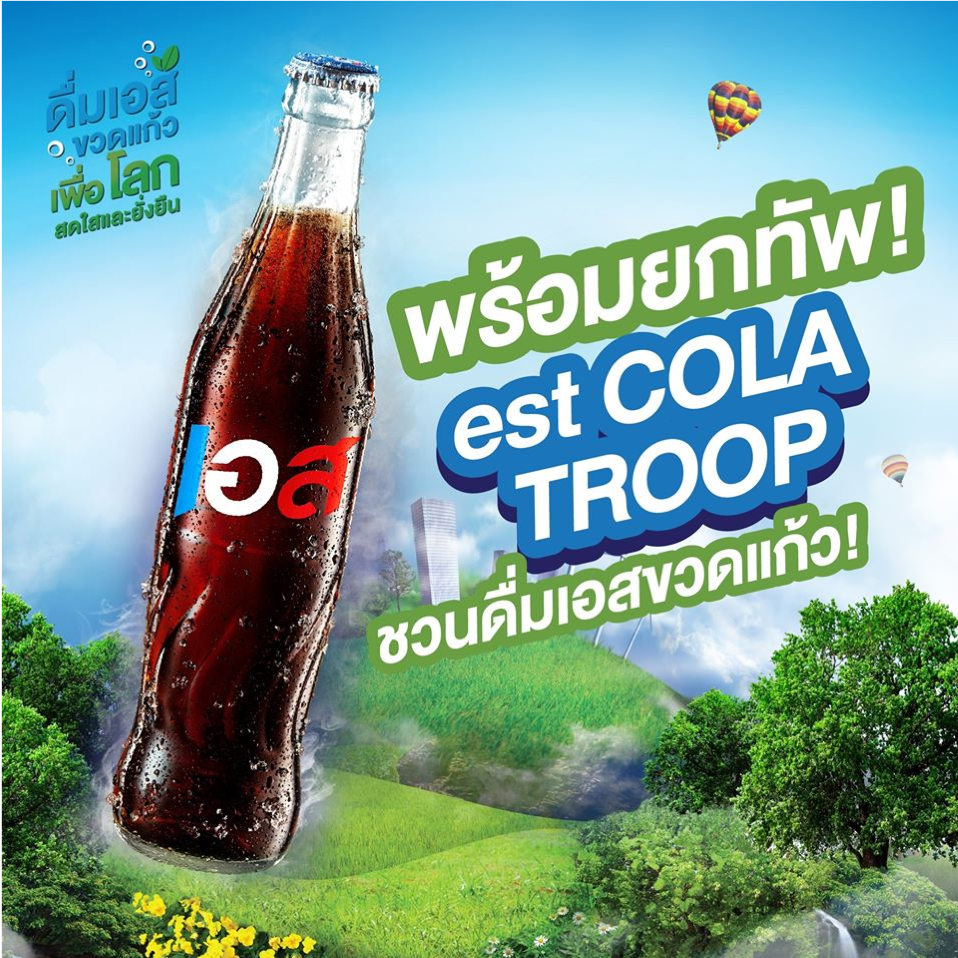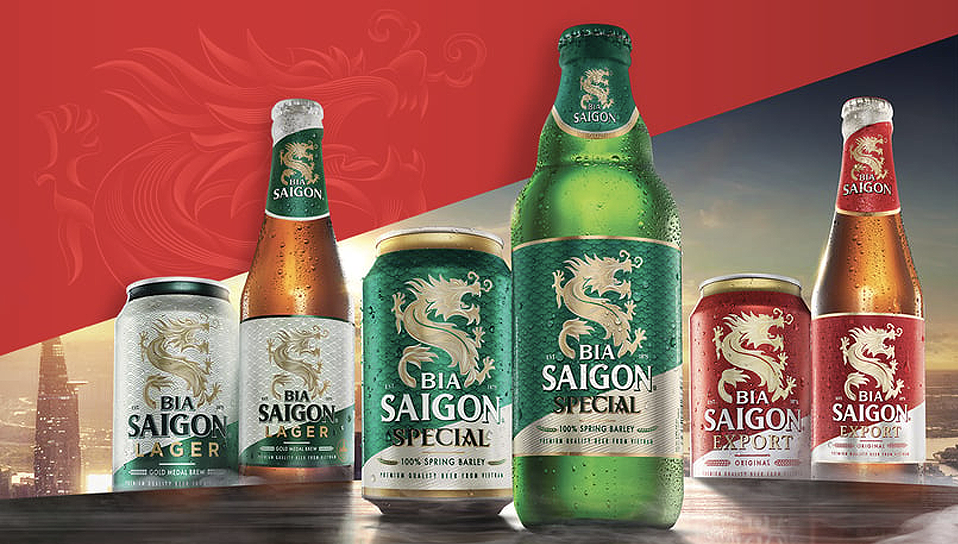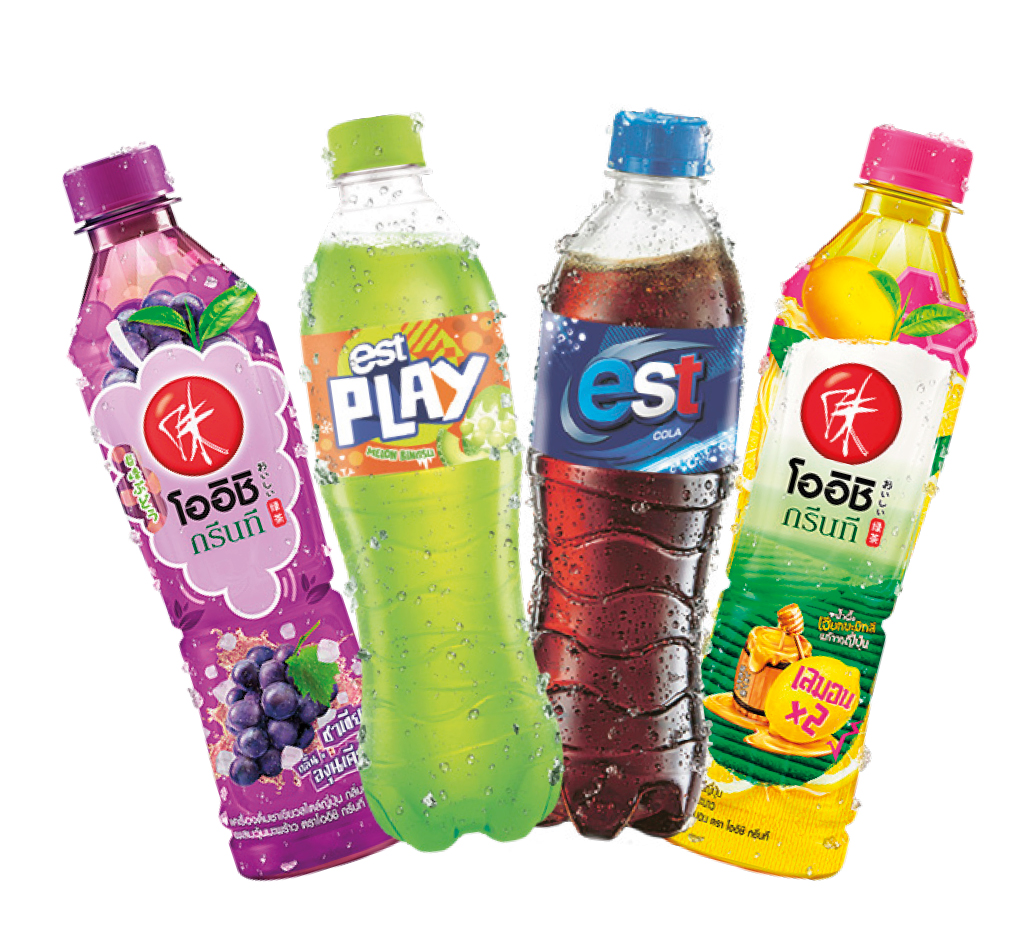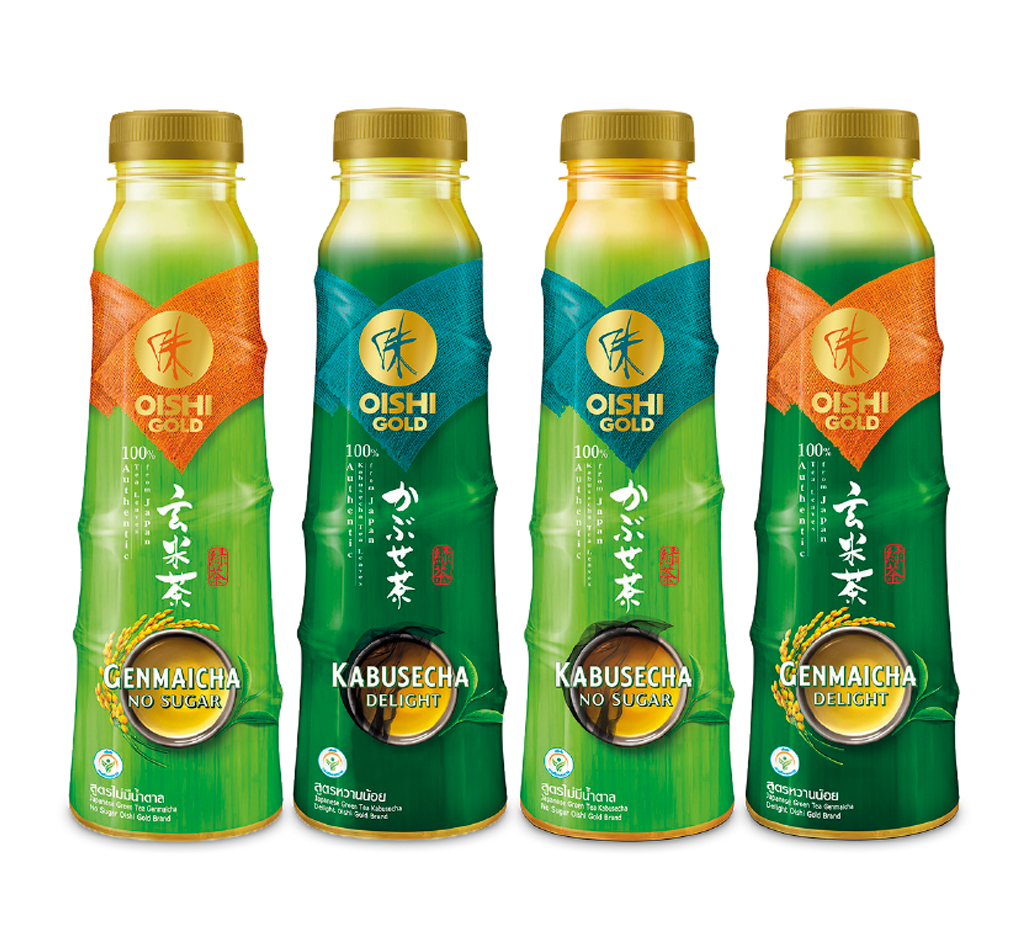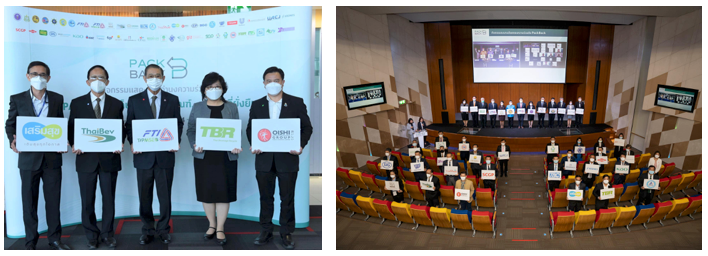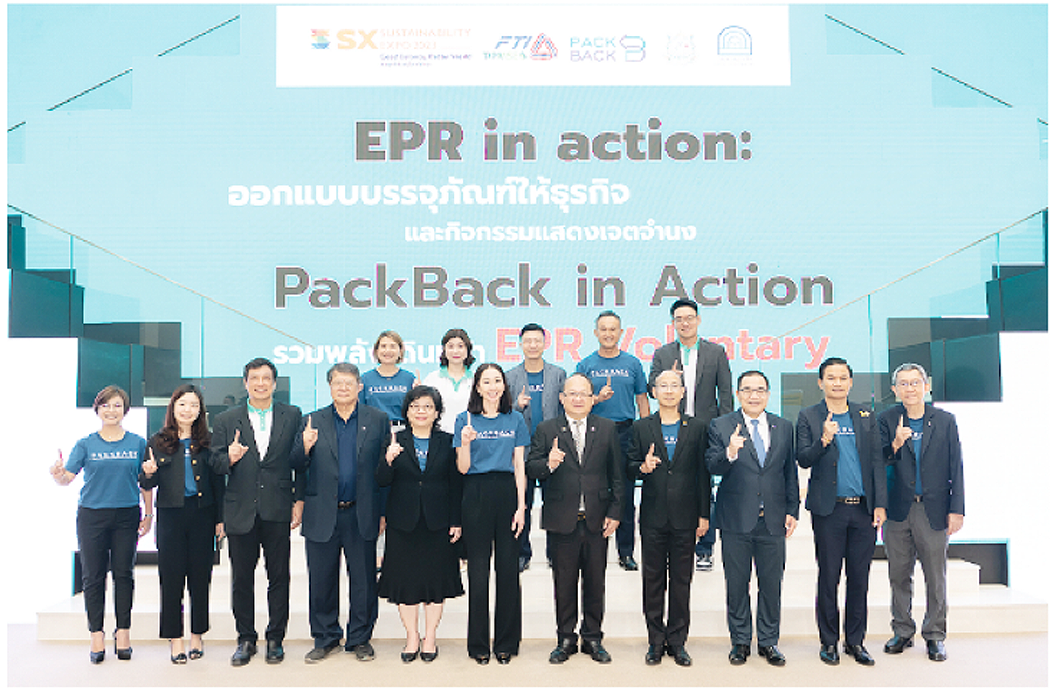A crucial part of closed-loop packaging management is to collect and sort post-consumption packaging. Thai Beverage Recycle Co., Ltd. (TBR), a subsidiary of ThaiBev, is task with ThaiBev’s post-consumption packaging collected via local business partners throughout the country and sorts them at company-owned sorting facilities. Main packaging materials retrieved by TBR include glass bottles, cullet, aluminium cans, PET bottles, and corrugated cartons.

TBR Recycling Facility in Nakon Ratchasima (left) and Ayutthaya (right)
In FY2023, TBR expanded into the HDPE collection business and retrieved 188.87 tonnes of post-consumption HDPE bottles for recycling.
In order to ensure efficient closed-loop post-consumption packaging management, TBR sends sorted post-consumption packaging directly to intended users, such as manufacturers and recyclers.

Glass contributes to the highest volume of key packaging material consumption at ThaiBev. It is used to package various products, including white spirits, blended spirits, whisky, brandy, beer, carbonated soft drink, drinking water, etc. In FY2023, ThaiBev reused over 1.364 million glass bottles, and collected 276,387 tons of cullet to be recycled. The amount collected is equivalent to 97 percent of returnable glass bottle products sold by the company in Thailand.
A nationwide campaign was launched to promote ‘Returnable est COLA bottles’ focusing on food
shops and restaurants channel. As an industry, returnable glass bottles has been losing its
charm at the expense of more convenient plastic PET bottles. However, EST brand sees
sustainability differently and committed to re-activate relevance of this format driving
growth of +7% and maximizing 80% of SermSuk’s environmentally friendly packaging portfolio
in this channel, surpassing industry peer performance rates.
SABECO applies the concept of returnable packaging by exchanging bottles and crates and nearly 100% of glass bottles are returned to the production process. SABECO has also made efforts to downgauge of aluminum cans and reduce the weight of corrugated cartons.
ThaiBev’s Carbonated Soft Drinks (CSDs) and Green Tea products are no longer sold in colored
PET bottles to facilitate feasible recycling process. Realizing the potential environmental
impacts of secondary packaging, ThaiBev is also working closely with its suppliers to study
the possibility of switching from non-recyclable to recyclable or reusable alternatives. For
instance, ThaiBev currently experiments on using PET of PVC labels in Oishi Green Tea
products
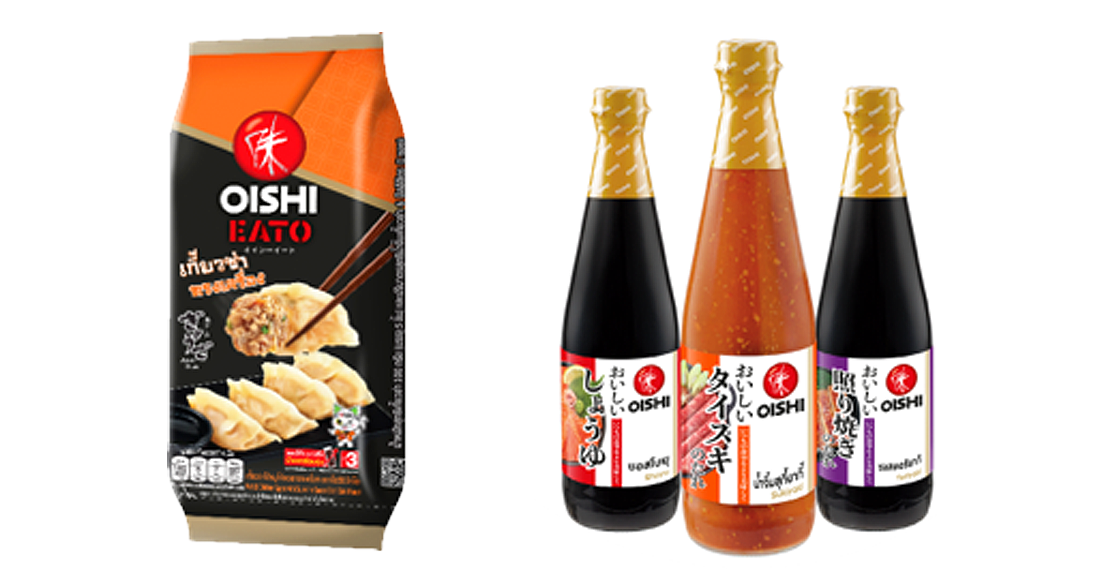
Oishi is also developing mono-layer material to replace multi-layer material for Oishi Eato, a Japanese-style ready-to-eat meal, and has changed the cap seal for Oishi Sauce, a Japanese-style dipping sauce and seasoning, from non-recyclable PVC plastic to PET plastic. The latter has been implemented since October 2022 and can reduce the amount of non-recyclable plastic by more than 138 kg per year.

PERCENTAGE OF GLASS PACKAGING RETRIEVED
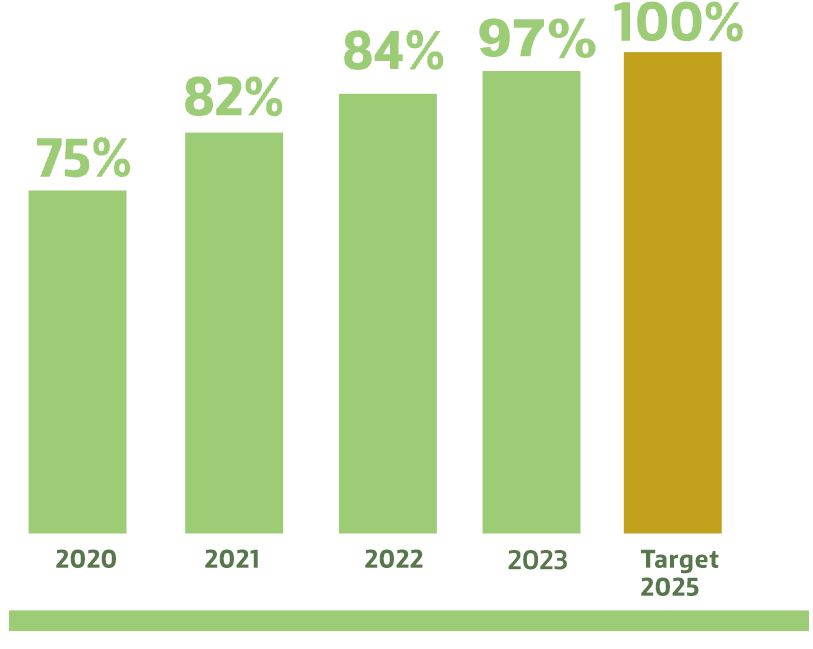

PERCENTAGE OF PAPER PACKAGING RETRIEVED
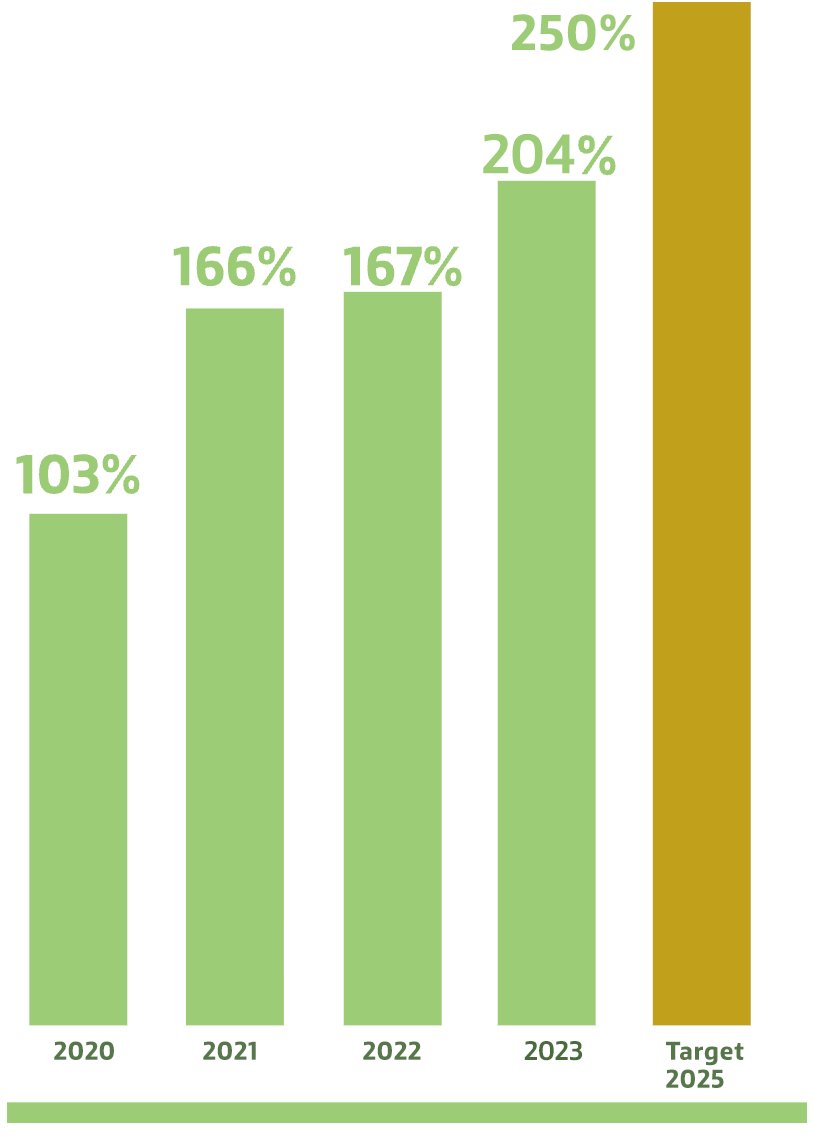
Aluminum Can Closed-Loop Recycling
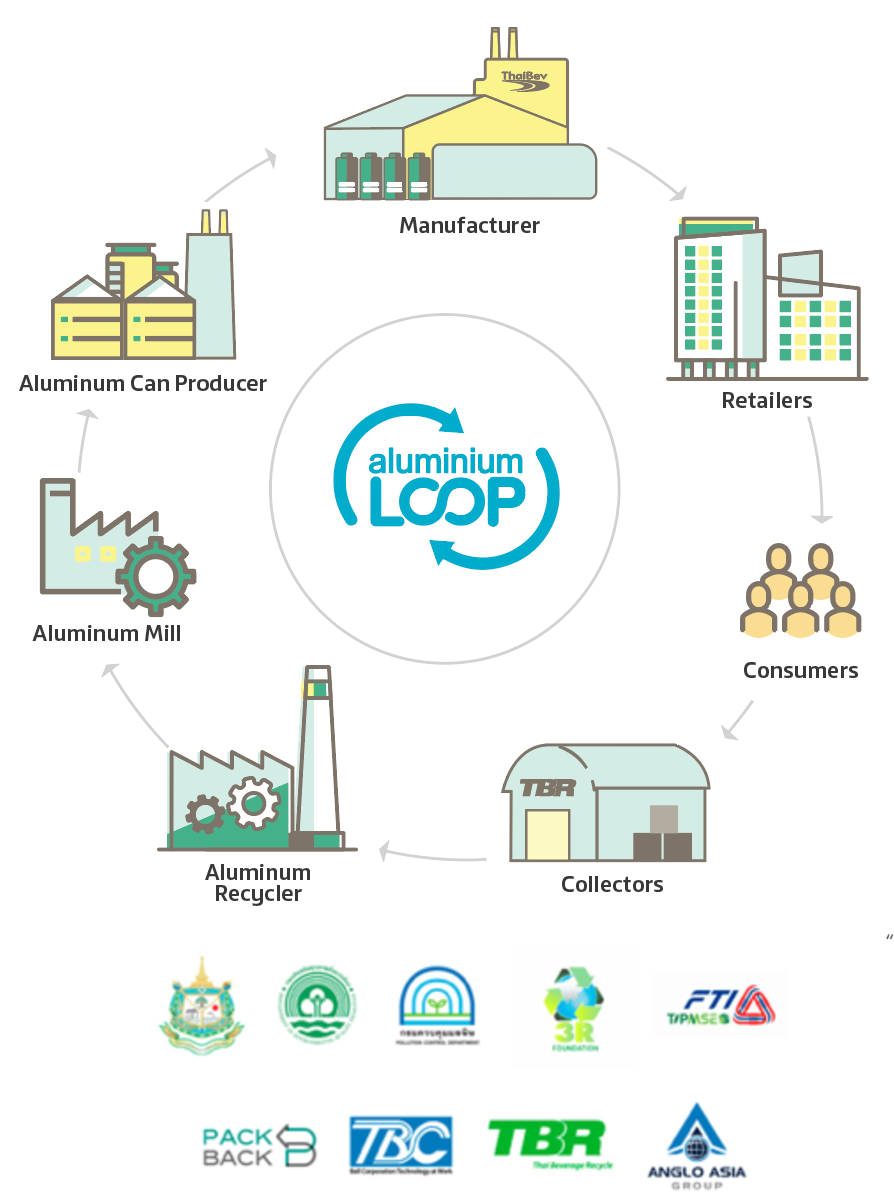
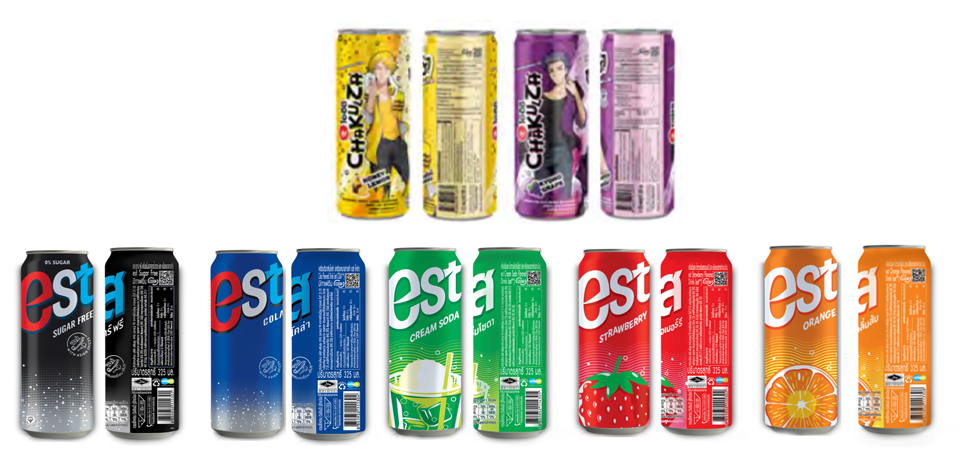
To further ThaiBev’s commitment to ensuring that recyclable packaging is actually recycled, TBR signed a Memorandum of Understanding (MOU) on “Transparency of Aluminum Can Closed-Loop Recycling”, which aims to establish a fully integrated recycling system for used aluminum cans in Thailand through supply chain collaboration. The objectives are to improve the efficiency of the recycling process, the recycling rate, and the proportion of recycled content in aluminum cans. An “Aluminum Loop” symbol was designed to create awareness among consumers, and is displayed on many product brands including ThaiBev’s popular soft drink products: Chakulza and est cola. The campaign is an example of how manufacturers and brand owners can collaborate with partners along the supply chain, and influence the demand for recycled packaging, thus boosting the recycling rate.
More information on aluminium loop
https://www.aluminiumloop.com
